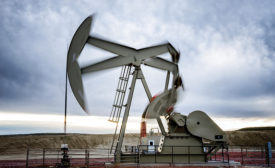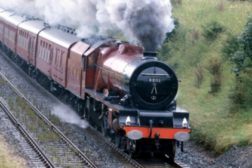Home » Keywords: » Bakken crude oil
Items Tagged with 'Bakken crude oil'
ARTICLES
The crucible of modern safety practices is in North Dakota
Read More
Wrangling with human nature
Safety’s age-old challenge comes to life in the Bakken
June 1, 2015
U.S. DOT proposes rulemaking for the safe transportation of crude oil, flammable materials
Releases new data on Bakken crude oil to support increased safety measures
July 24, 2014
Get our new eMagazine delivered to your inbox every month.
Stay in the know on the latest safety trends.
SUBSCRIBE TODAYCopyright ©2024. All Rights Reserved BNP Media.
Design, CMS, Hosting & Web Development :: ePublishing





